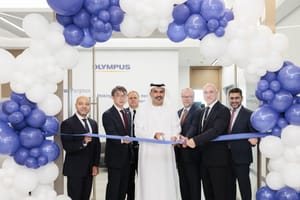The Gulf Cooperation Council (GCC) is poised for significant industrial growth in 2025, thanks to a stable economic outlook and investor-friendly policies. However, challenges like geopolitical tensions, global trade wars, and skills shortages remain hurdles.
Here are five opportunities for the GCC to capitalize on while addressing potential obstacles:
1. Friendshoring
The GCC can leverage its perceived neutrality and world-class infrastructure to become a hub for friendshoring, a strategy where manufacturing is relocated to countries with shared values. The region offers competitive energy costs, strong demand, access to raw materials, and supportive industrial policies, making it attractive for mitigating global supply chain risks.
2. Advanced Manufacturing
Semiconductors are emerging as a key focus area, with initiatives across the GCC to localize production. Companies like TSMC and Samsung are exploring facilities in the UAE, while Saudi Arabia’s $100 billion Alat project aims to position the Kingdom as a global leader in advanced industrials.
3. Partnerships with China
Chinese firms are increasingly seeking international markets amid domestic slowdowns and trade barriers. The GCC can capitalize by hosting localized manufacturing. For instance, the China-UAE Industrial Capacity Cooperation Demonstration Zone in Abu Dhabi is set to house 40 Chinese firms, representing $10 billion in investments under the Belt and Road Initiative.
4. Green Industry Potential
The GCC can position itself as a hub for green industries by leveraging its low-cost green energy and ambitious hydrogen plans. Decarbonizing industrial production, such as green steel and cement, will align with global regulations and future demand while supporting sustainability goals.
5. Meeting Regional Demand
While global risks like recession and oil price fluctuations pose challenges, the GCC can focus on manufacturing goods with strong regional demand, such as materials for oil and gas, construction, utilities, and ports. Diversifying beyond petrochemicals and basic metals into advanced manufacturing can mitigate global market pressures.
Looking Ahead
Despite challenges, the GCC’s strategic initiatives and strengths in infrastructure, energy, and policy provide a solid foundation for industrial growth and innovation in 2025. Manufacturers that adapt to emerging opportunities can thrive in this dynamic environment.
The writer is the IMEA head of Automotive and Manufacturing Industries at Oliver Wyman.









